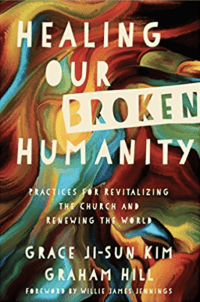6 ways to empower and release more female leaders

Before building a biblical case for women in ministry, Eugene Cho says these words about the church being a “white man’s world” (and in support of female leadership):[1]
…we have to ask how are we as revolutionary followers of Jesus – who debunked the systemic structures during his life – working, living, ministering, writing, speaking and creating to work towards that end?
Power, voice and influence are not easily pursued and obtained. It must be distributed and shared from those who have that very power, voice and influence. And because it is so counter-cultural, we have to be that much more intentional.
As a male, I am embarrassed at times at the manner in which we [men] directly, indirectly, or systemically oppress our sisters.
Women are held back from leadership in many areas of church and society. Their leadership credibility and credentials are constantly challenged; in ways men don’t experience.
A female Christian friend recently asked me to watch a TED talk by Facebook’s Chief Operating Officer, Sheryl Sanderg. It’s a powerful talk on “why we have too few women leaders.” The talk has been viewed almost 8 million times.[2]
Sheryl begins that talk by highlighting some concerning statistics. She shows that “women are not making it to the top of any profession anywhere in the world.”
Women are still kept out of the most senior roles in church and society. Sheryl Sanderg shares some of the statistics below in her talk, and I add some church-related data to her points:
- Of the 190 heads of state, only 9 are women.
- Globally, only 13% of parliamentarians are women.
- Roughly 15% of heads of global businesses are women (Fortune 500). This percentage is in decline and stood at only 5% in 2017.
- Only 20% of non-profit leaders are women.
- Women face much harder choices than men, when it comes to juggling personal, family, and professional lives. Two-thirds of married male senior managers have children, whereas only one-third of married female senior managers have children.
- While the situation is slowly improving, only 10% of Protestant senior or solo pastors in the United States are women.[3]
- Full-time male senior pastors receive 27% more in pay and benefits than their female senior pastor peers.
- Pew Research examined “nine major religious organizations in the U.S. that both ordain women and allow them to hold top leadership slots. Of those organizations, four have had a woman in the top leadership position. And, so far, each of these four has had only one woman in the top position.” Currently, only 2 of the 9 major religious organizations in the United States are led by women.[4]
HOW WILL WE FIX THIS?
There’s no easy fix, since we’re talking about a problem that grew over many generations. But we can make some changes that will help us head in the right direction.
It begins with recognizing that we have a problem. The we need to ask ourselves some tough questions, and be prepared for the answers and be willing to change:
What are the messages we tell ourselves, the women who work among us, and our daughters? What barriers have we erected that prevent their advancement and contribution? How can we truly amplify the voices of women and honor their gifts? How are we enabling women “to sit at the table,” by seeking out female friends, by listening to women, by honoring “ordinary” women, by examining our beliefs and practices, by embracing reciprocal mentoring, by praying with women, and by profiling and promoting female speakers, board members, academics, and senior leaders?
Gordon Fee once wrote,[5]
It seems a sad commentary on the church and on its understanding of the Holy Spirit that “official” leadership and ministry is allowed to come from only one half of the community of faith. The New Testament evidence is that the Holy Spirit is gender inclusive, gifting both men and women, and thus potentially setting the whole body free for all the parts to minister and in various ways to give leadership to the others. [This] is a Spirit agenda, a plea for the releasing of the Spirit from our strictures and structures so that the church might minister to itself and to the world more effectively.
What can we do to empower and release more female leaders in the church? Here are 6 things.
[bctt tweet=”6 ways church & society can empower & release more female leaders.” username=”GrahamJGHill”]
1. GET REAL ABOUT EMPOWERING AND RELEASING FEMALE LEADERS
Too often, we give a “nod” to women in ministry and leadership but do nothing to bring about change. It’s one thing to limit women’s ministry because of biblical convictions; it’s a shameful thing to say you’re egalitarian (or all in favor of women in leadership) and then do nothing to make that a reality. We need to move beyond giving “a nod” to females in leadership, and actually prioritize this and do something about it now.
2. ENABLE WOMEN TO SIT AT THE TABLE
Most Christian organizations and churches don’t enable women to sit at the table. I shared ways we can fix this, in my previous blog. Sheryl Sanderg says that we need to add something to this: women often systematically underestimate their own abilities. Women don’t negotiate for themselves in the church and the workforce. Men attribute their success to themselves and their abilities, while women attribute their success to other external factors (not to themselves).
We need to create space for women to sit at the table. Just like men, women need spaces where they can contribute and learn and grow. Non-one become a brilliant leader overnight. We all need support, permission, and mentoring. We all need to take risks, make mistakes, and grow into leadership.
So, just like men, women need people who believe in them and help them believe in themselves. Sheryl Sanderg provides a role model for this. She says to women: “Believe you’ve got the A. Reach for the promotion. Ignore the inner voices. Know you’ll pay the price for assertiveness but keep your hand up and your voice up anyway.”
Those of us who are senior leaders in Christian organizations need to see that men are reaching for opportunities more than women, and choose to help women reach for those opportunities. Decide to push women forward into leadership, honor their gifts and talents, and encourage them to believe in themselves and have a go. Address the systems and structures that prevent female leadership, and enable women to “sit at the leadership table.”
So, what can we do? Make sure women are at the leadership table in our churches and teams and boards (especially in leadership roles and on boards). Encourage women to be assertive and to believe in themselves. Encourage women to reach for promotions and recognitions. Find ways to coach and mentoring women into senior roles (this won’t happen without intentionality).
3. HELP WOMEN TO SEE WOMEN AT THE TABLE
It’s really hard to believe you can do something if you don’t have role models. So, we need to help women see other women at the table. This involves promoting women into senior leadership positions (by the way, if you think that’s tokenism, you’ve haven’t been paying attention to the talented women all around you!) Invite females in key leadership positions within the church and the workforce to undertake training and development for teams, and to share their stories. Provide “networking” opportunities for women, so that they can learn from women leaders who have gone before them.
4. TRANSFORM MALE-DOMINATED ORGANIZATIONAL AND LEADERSHIP CULTURES
The church is one of the most male-dominated organizations on the face of the earth. Male-dominated and/or patriarchal organizational cultures are everywhere in the church.
So, we need to address and change this culture. What are the existing attitudes towards women in the church and family, and how do we shape healthier and more honoring attitudes towards women? What gets rewarded or penalized in male-dominated cultures, and how do we change that? What is our church’s or organization’s leadership model, and how does it reward men and restrict women? Sometimes women can feel pressure to conform to the male leadership models… What are the alternatives to this?
We need to examine our recruitment practices, and our leadership development processes. People often “recruit in their own image/gender” and “develop leaders in their own image/gender.” If we have mostly men in middle and senior management or church leadership positions, it can be difficult for women to be seen as appropriate potential leaders. We need to be thorough when recruiting and ensure that selection criteria is not subtly aimed more at men. We need to invite women into our leadership training and development programs; asking women to help us reshape them so that they are accessible and relevant to both women and men.
Organizational cultures don’t fix themselves. And they resist change. Transforming male-dominated organizational and leadership cultures takes courage and hard work, but it’s worth it.
5. MODEL AND ESTEEM REAL PROFESSIONAL AND PERSONAL PARTNERSHIPS
Sheryl Sanderg emphasizes this in her talk, and it’s highly relevant for Christian marriages and gender-relationships. We need to model and esteem real partnerships between women and men – both professional partnerships in the workforce and church, AND personal partnerships in friendships and marriage.
Research suggests that we’ve made more progress on this front in the workforce than in the home. Women still carry the weight of the family and housework. Women often work and do the bulk of the chores and child-rearing. But, households with equal responsibility have lower divorce rates, and much happier marriages. Plus, they honor and esteem real partnership.
So, how do we address this? We need to emphasise the importance of real partnerships between men and women (in all spheres of life, including church, professions, and in the home). We must emphasise this by example, and also verbally in business meetings and social gatherings. We must take every opportunity to elevate and model equal partnerships between women and men (including emphasizing this in school and college classes, and in a multitude of church and home settings, so that younger generations of men get the message). Finally, we must encourage girls and women to settle for nothing less than real partnerships.
6. BUILD CULTURES WHERE WOMEN AND MEN CAN EQUALLY SUCCEED
Finally, the church need to make a commitment to build an environment where women and men can equally succeed. This involves addressing misogyny and sexism and patriarchy. It means settling for nothing less than equality and honor for all people—all women and all men. It means addressing subtle and unrecognized prejudices and barriers, and showing the world what redeemed and restored gender and personal relationships truly look like.
We need to find ways to encourage and coach women to stay proactive and engaged and reaching for more, at every stage in their ministries and careers. Again, Sheryl Sanderg suggests that this involves encouraging women to refuse to lean back from opportunities and leadership in anticipation of future life stages and commitments (e.g. parenting). She says encourage women to “keep your foot on the gas pedal until the very day you need to leave to have a child” (and, if you’re an employer, support parental leave, and offer real opportunities to return to work, if that’s what the man or woman chooses to do). Make it easier for women (and men) to return to the workforce after having children, and to continue in their career and ministry aspirations.
What else can we do? Get older women to encourage younger women to embrace this perspective. Get older men to show younger men what truly honoring and promoting women looks like, and to encourage younger men to do the same. Seek to build a culture where men and women are equally able to succeed, and equally able to be liked and respected for their accomplishments and gifts.
The challenge will be getting really practical in how we encourage women to be assertive, more confident, and reach for promotions and opportunities. But the challenge is also in addressing the hidden prejudices and barriers and sexism—and the patriarchal cultures—and addressing the cultural and leadership dynamics that prevent women from succeeding and thriving. We need Christian leaders who value this, and who can release those values into their marriages, families, churches, teams, businesses, and organizations.
The words of N.T. Wright ring true:
Just as I think we need radically to change our traditional pictures of the afterlife, away from the mediaeval models and back to the biblical ones, so we need radically to change our traditional pictures both of what men and women are and how they relate to one another within the church and indeed of what the Bible says on this subject. I do wonder, sometimes, if those who present radical challenges to Christianity have been all the more eager to make out that the Bible says certain things about women, as an excuse for claiming that Christianity in general is a wicked thing and we ought to abandon it. Of course, there have been plenty of Christians who have given outsiders plenty of chances to make that sort of comment. But perhaps in our generation we have an opportunity to take a large step back in the right direction.
A PRAYER
“Forgive us for holding women back from using their gifts fully and freely. Give us a passion to see this change. Give us the courage to build churches and organizations that value and honor women and men equally and fully, and that invite everyone to contribute with all the gifts that God has given them.”
See also
An apology to victims of domestic violence in the church
6 ways to empower and release more female leaders
#MeToo – Stop asking women & girls to fix the problem! Men, #MeToo is on us
9 ways to amplify the voices & honor the gifts of women
Churches and their leaders must confront domestic violence
Women are the heartbeat of living faith
It’s Time to Stop Organizing All White Male Panels and Conferences
7 inspiring women: A 7-part series on inspiring female Christian leaders and thinkers
(Image credit: Josephine Lee picture taken by Jeremy Plemel – Jowdy Photography http://jowdy.com)
Graham Hill
Graham Hill (PhD) teaches pastoral studies and applied theology at Morling College in Sydney, Australia. He is the Founding Director of The GlobalChurch Project – www.theglobalchurchproject.com. Graham has written 6 books. His latest three books are “GlobalChurch: Reshaping Our Conversations, Renewing Our Mission, Revitalizing Our Churches” (InterVarsity Press, 2016), “Salt, Light, and a City, Second Edition: Ecclesiology for the Global Missional Community: Volume 1, Western Voices” (Cascade, 2017), and a co-authored book with Grace Ji-Sun Kim called “Healing Our Broken Humanity: Practices for Revitalizing the Church and Renewing the World” (InterVarsity Press, 2018)
© 2016 All rights reserved. Copying and republishing this article on other Web sites, or in any other place, without written permission is prohibited.
[2] https://www.ted.com/talks/sheryl_sandberg_why_we_have_too_few_women_leaders/up-next#t-135387
[3] https://www.christianitytoday.com/women-leaders/2015/october/state-of-female-pastors.html
[4] http://www.pewresearch.org/fact-tank/2016/03/02/women-relatively-rare-in-top-positions-of-religious-leadership/
[5] “The Priority of Spirit Gifting for Church Ministry”, Discovering Biblical Equality Complementarity without Hierarchy. Ronald W. Pierce, Rebecca Merrill Groothuis, Gordon D. Fee (eds) (Leicester: IVP Academic, 2005), 254.
[6] http://ntwrightpage.com/2016/07/12/womens-service-in-the-church-the-biblical-basis/
Want to be mentored?
Books
Don’t forget to buy Graham Hill’s books:
- Global Church
- Salt, Light, and a City (second edition)
- Healing Our Broken Humanity



Comments: We’d love to hear your comments and reflections on this blog post!





